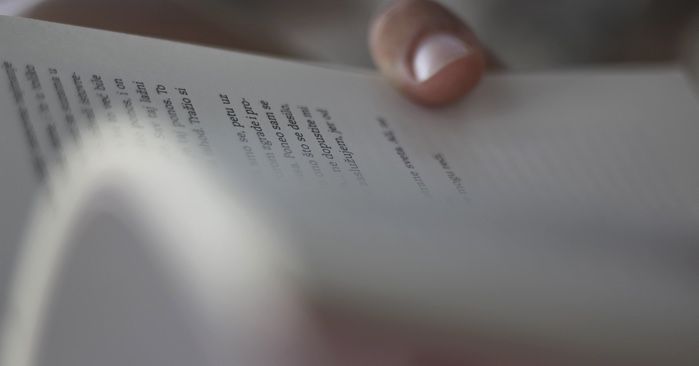
Poems About The Weather to Celebrate National Poetry Month
April is National Poetry Month! Spring rolls in! Birds chirp! Thunder rolls for April showers. Sometimes there’s a freak snow storm. Other days there’s wind. Poetry can cover all these natural — and unnatural — weather patterns. From praise to condemnation, from long verse to short, poets approach all types of weather in their works. Find imagery and imagination in this list of weather poems.
“In April” by Rainer Maria Rilke
Let’s start with a poem about April. Rilke’s poem is about what you might expect an April poem to be about. It lies in the woods and recognizes different natural wonders throughout the day. The scenes are intricate and detailed. In the middle stanza, the speaker notices, “After long rainy afternoons an hour / Comes with its shafts of golden light and fling / Them at the windows in radiant shower.” From one side of the window pane to another, nature makes its way into life in a beautiful way.
For more from Rilke, read The Book of Hours.
“Even The Rain” by Agha Shahid Ali
A ghazal is a form poem. It contains five to fifteen couplets. Every line is about the same length, and usually a phrase repeats. Then at the end, the poet usually includes their own name as the speaker address them. That’s the form of Ali’s poem that focuses on the rain. Almost every stanza is self-contained, so most hit like a rain drop. The poem uses rain as a measure of belief and reality. The speaker says, “What will suffice for a true-love knot? Even the rain?” It goes on to explore love, grief, vice, and loss.
For more from Ali, read Call Me Ishmael Tonight.
“Wind” by Gwendolyn Bennett
Wind is my least favorite weather, FYI. This poem is a hinge poem, having two stanzas about the same length. It presents the wind as freedom at first. The speaker says, “The wind was a care-free soul / That broke the chains of earth.” That sounds incredibly motivating. The second stanza begins with a “But,” which means the poem is about to take a serious turn. Along with freedom can come danger. In this danger, “trees were scarred, their branches broke.” This poem shows how balance is important.
Bennett did not publish a full poetry collection, so you can find her work in various literary journals and websites.
“Female Rain” by Laura Tohe
This poem is seven lines packed with powerful imagery. (Tohe wrote the original version in Navajo, “Níłtsą́ Bi’áád.” It is ten lines before translation and seven lines in English.) The process of precipitation appears as a pregnant woman. The rain is “rainchild.” The rain “Danc[es] in from the south.” The rain offers “sustenance / luminescence all around.” The poem is subtle and simultaneously shows the power of motherhood.
For more from Tohe, read Tseyi / Deep In The Rock.
“North Wind” by Lola Ridge
I still am not a fan of wind, but this poem approaches wind in a different way. The speaker begins, “I love you, malcontent / Male wind,” personifying the wind as a lover. The wind is clearly not easy to get a long with (the real wind and the metaphorical wind). Still, the speaker calls to the North Wind erotically. The speaker says, “Envelop all my hot body” and “Bring me to stark plains and steppes.” The speaker is demanding of the wind and shows incredible power in this command. Also, take note — Ridge’s poetry was published in the 1920s and ’30s, which means her voice was edgy and unique in the public forum.
For more from Ridge, read Sun-Up and Other Poems.
Weather poems span across other poems like the change of seasons, dedications to particular storms, odes to each month, and as metaphors for every human emotion. Head on over to Book Riot’s extensive poetry archive for more poems to celebrate National Poetry Month.












